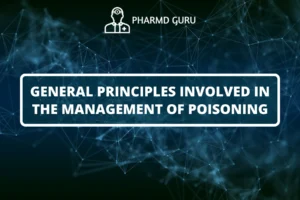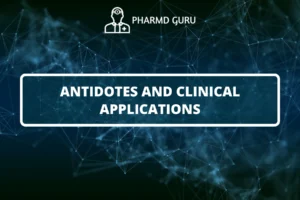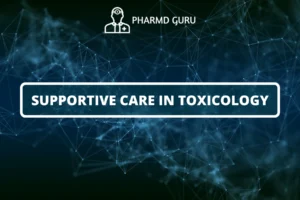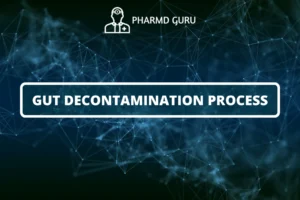Hydrocarbons are organic compounds commonly found in petroleum products and PEG (polyethylene glycol). Accidental ingestion or inhalation of hydrocarbons can lead to acute poisoning, which can be dangerous, especially in children.
SCROLL DOWN TO THE BOTTOM OF THE PAGE FOR ACTUAL NOTES
TABLE OF CONTENTS:
- Introduction
- Hydrocarbons: Petroleum Products and PEG
- Clinical Symptoms of Acute Hydrocarbon Poisoning
- Management of Acute Poisoning
- 4.1. Immediate Actions
- 4.2. Medical Interventions
- 4.3. Supportive Care
- Prevention Tips
1. Introduction
Hydrocarbons are organic compounds commonly found in petroleum products and polyethylene glycol (PEG). Accidental ingestion or inhalation of hydrocarbons can lead to acute poisoning, which can be dangerous, especially in children. This article explores the clinical symptoms associated with acute hydrocarbon poisoning and provides insights into the recommended management strategies.
2. Hydrocarbons: Petroleum Products and PEG
Hydrocarbons are chemical compounds made up of hydrogen and carbon atoms. They are found in various petroleum-based products, including gasoline, kerosene, diesel fuel, motor oil, and certain solvents. Polyethylene glycol (PEG) is a synthetic compound used in many industrial and medical applications.
3. Clinical Symptoms of Acute Hydrocarbon Poisoning
Acute hydrocarbon poisoning can manifest with the following clinical symptoms:
- Respiratory Distress: Inhalation of hydrocarbon vapors or aspiration of hydrocarbon-containing substances can cause respiratory distress, including coughing, wheezing, difficulty breathing, or choking.
- Gastrointestinal Effects: Ingestion of hydrocarbons can irritate the gastrointestinal tract, leading to nausea, vomiting, abdominal pain, and diarrhea.
- Neurological Symptoms: Depending on the type and amount of hydrocarbon exposure, individuals may experience dizziness, drowsiness, confusion, seizures, or loss of consciousness.
- Chemical Pneumonitis: Severe cases of hydrocarbon poisoning can result in chemical pneumonitis, characterized by inflammation of the lungs, coughing, chest pain, and difficulty breathing.
It is important to note that symptoms may vary depending on the specific hydrocarbon involved and the route of exposure.
4. Management of Acute Poisoning
4.1. Immediate Actions
In cases of acute hydrocarbon poisoning, it is essential to take the following immediate actions:
- Call Emergency Services: Contact local emergency services or a poison control center immediately to seek professional medical guidance.
- Provide Information: Provide detailed information about the type of hydrocarbon involved, the route of exposure, and the individual’s current symptoms.
4.2. Medical Interventions
Medical professionals may employ the following interventions for managing acute hydrocarbon poisoning:
- Airway Management: Ensuring a clear airway is of utmost importance. If there are signs of respiratory distress, oxygen therapy or assisted ventilation may be necessary.
- Gastric Decontamination: Depending on the circumstances and timing, gastric decontamination techniques such as activated charcoal administration or gastric lavage may be considered to reduce further absorption of the hydrocarbons.
- Monitoring and Laboratory Tests: Monitoring vital signs, oxygen saturation levels, and performing laboratory tests to assess organ function and the extent of any complications.
- Supportive Measures: Supportive care measures, including maintaining hydration, managing symptoms such as seizures or respiratory distress, and providing appropriate medications, are crucial for stabilizing the individual’s condition.
4.3. Supportive Care
Supportive care is vital in managing acute hydrocarbon poisoning and may involve:
- Respiratory Support: Providing supplemental oxygen or mechanical ventilation to support respiratory function in cases of severe respiratory distress or chemical pneumonitis.
- Gastrointestinal Protection: Administering medications to protect the gastrointestinal lining and managing symptoms such as nausea and vomiting.
- Monitoring and Observation: Continuous monitoring of vital signs, neurological status, and respiratory function to identify any changes or complications.
5. Prevention Tips
Preventing hydrocarbon poisoning is crucial. Consider the following tips:
- Store petroleum products and hydrocarbon-containing substances in child-resistant containers, out of reach of children.
- Keep hazardous substances locked away in a secure location.
- Use caution and follow safety guidelines when handling and storing hydrocarbon-based products.
- Educate children and adults about the dangers of ingesting or inhaling hydrocarbons.
ACTUAL NOTES




